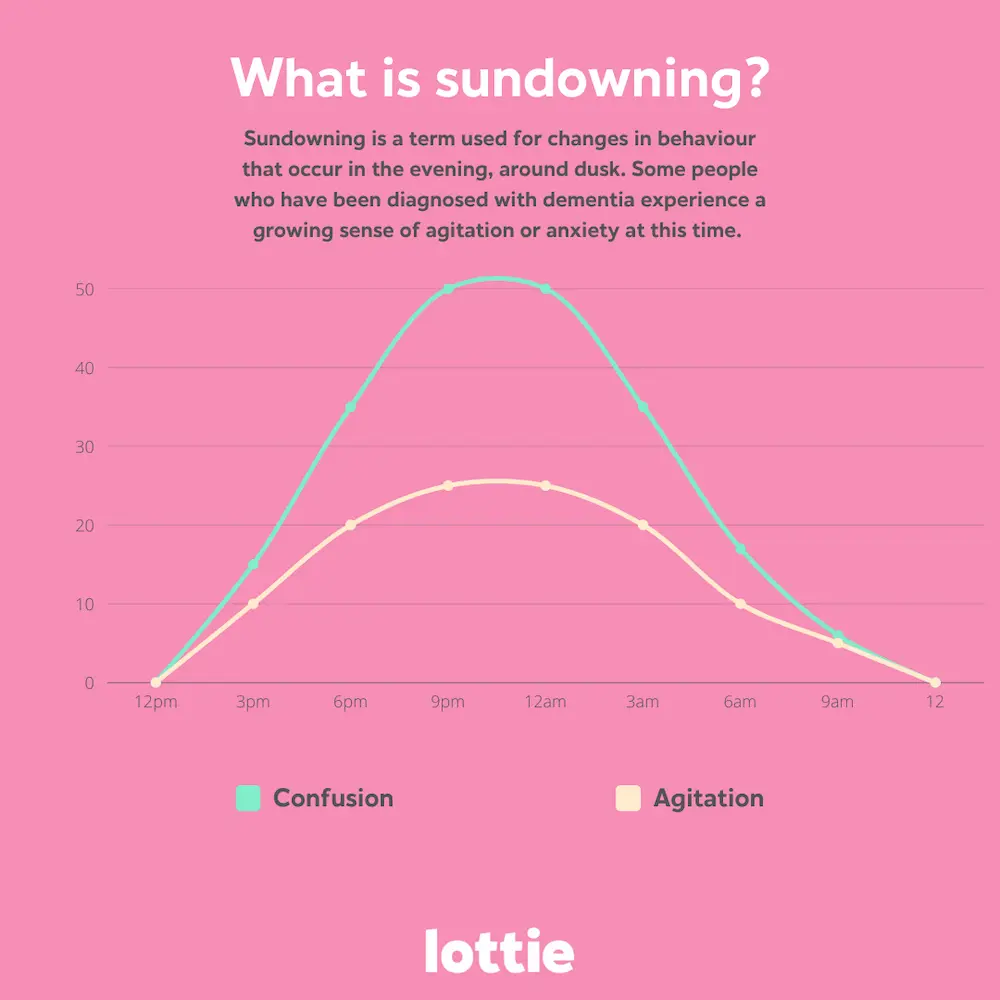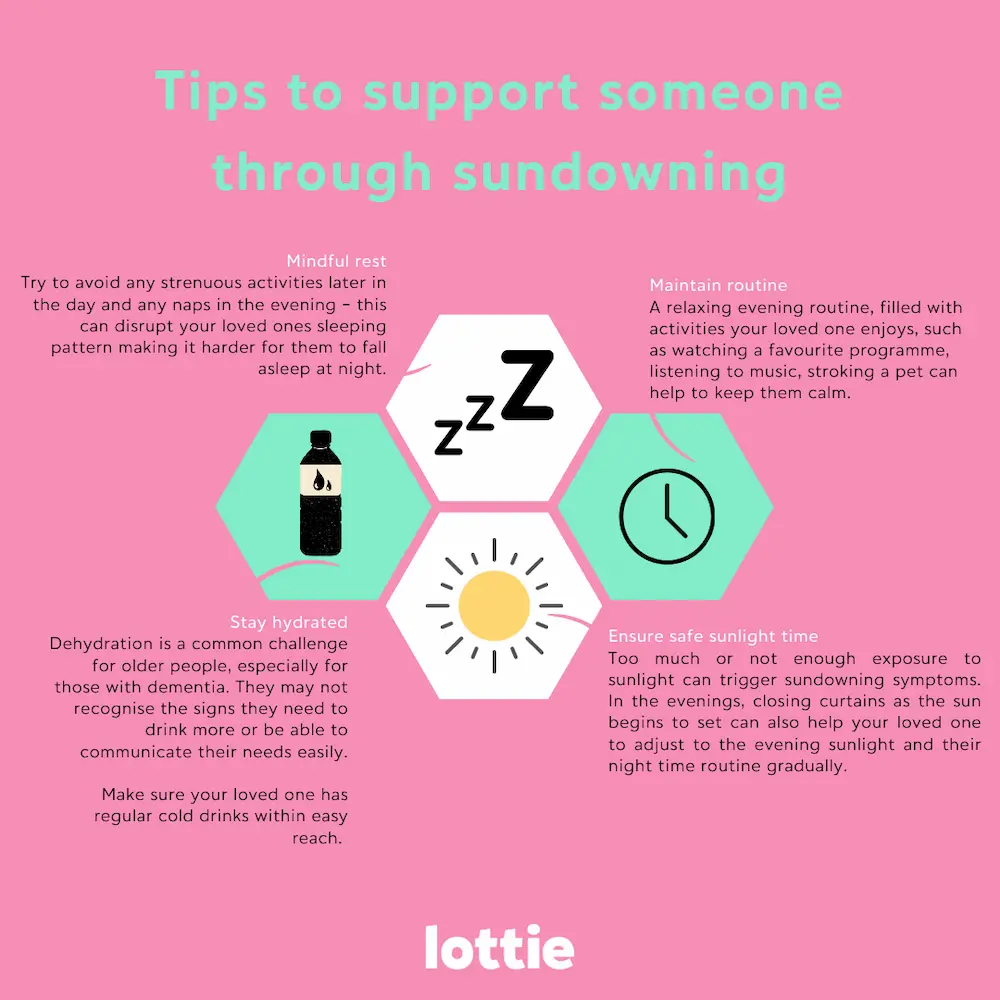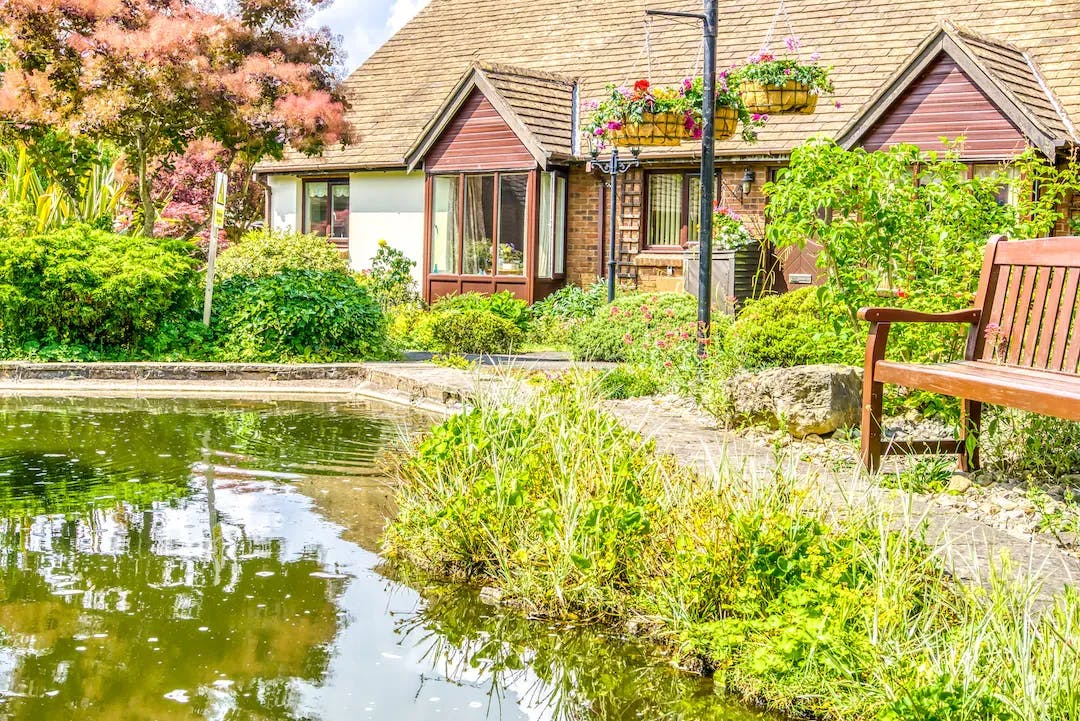How to Take Care of a Loved One Experiencing Sundowning

Estimated Reading Time: 6 minutes
People living with Alzheimer's or dementia often experience increased confusion and anxiety and sometimes they may have trouble sleeping. Sometimes those living with dementia may experience changes in behaviour late in the afternoon or early evening - this is often referred to as ‘sundowning’.
Whilst sundowning symptoms can occur throughout the year, changes in the season will often exacerbate sundowning behaviour. For example, adjusting to hotter weather in the summer and lack of sunlight in the winter.
Our new research has revealed although sundowning is common in those living with dementia, the signs and symptoms are not always clear. Over the last 12 months, there has been a surge of online searches from dementia carers who are looking for support on ‘sundowning’ and ‘dementia’:
100% increase in online searches on Google for ‘sundowning behaviour’
89% increase in online searches on Google for ‘sundowners syndrome’
29% increase in online searches on Google for ‘sundowning dementia symptoms’
Need to find dementia care fast?
Browse the best dementia care homes for your loved one.
In this article on dementia and sundowning:
- What is sundowning?
- When does sundowning occur?
- How long does sundowning last in dementia?
- What causes sundowning?
- How to take care of a loved one experiencing sundowning
What Is Sundowning?
Sundowning is a state of confusion that many people living with dementia experience in the late afternoon or early evening. It can cause changes to their behaviour and mood.
Because dementia and sundowning are linked, it isn’t surprising that we’ve seen a rise in online searches during the heatwave for sundowning support. One in five people living with dementia experience sundowning symptoms and the heat can heighten behavioural sundowning episodes.
Changes in seasons can heighten behaviours of sundowning in those living with dementia as their internal body clock adjusts to a new routine.
In the height of summer, the longer days of sunlight can leave those experiencing sundowning symptoms confused for longer and combined with exhaustion from the heat, sundowning episodes can be worsened.

When Does Sundowning Occur?
Sundowning usually doesn’t start occurring until the mid to late stage of dementia. However, once sundowning episodes start, it’s something that can potentially happen occur every afternoon or evening.
In the early stages of sundowners, symptoms can often be subtle and difficult to spot. These symptoms could include:
- Restlessness and agitation
- Irritability
- Confusion
- Disorientation and other similar behavioural changes
As sundowning progresses, these symptoms will start to become more noticeable, with some of the most common symptoms now including:
- Anger
- Paranoia
- Hallucinations
- Crying
- Wandering
- Hiding objects
- Trouble sleeping
How Long Does Sundowning Last in Dementia?
Sundowning usually occurs at a similar time each day for every individual with dementia and will last for a few hours at a time. In some cases, sundowning can also last through the night. If this happens, the sleep pattern of a caregiver and the person with dementia can be greatly affected.
Once the bout of sundowning has run its course, the impact of sundowning will fade and most people will revert to their normal selves.
What Causes Sundowning?
Whilst the main cause of sundowning is unclear, there are lots of factors that can trigger a sundowning episode, including:
- Unmet needs (such as tiredness, hunger and thirst)
- Lack of exposure to sunlight during the day
- Disturbance to a daily routine
Sometimes, what seems like ‘sundowning’ could be the person trying to communicate a need.
In the summer months as the temperatures in the UK continue to rise, it’s really important to recognise the signs and behaviours of sundowning, in order to keep those living with dementia safe and well.
How to Take Care of a Loved One Experiencing Sundowning
If you’re caring for someone living with dementia, we’ve shared some helpful tips to help keep your elderly loved one safe and well during the summer heat.

1. Help your loved one to communicate their needs
Often, sundowning can be triggered by the feeling of discomfort or an unmet need, such as hunger, thirst or tiredness. Good communication can make it easier to meet your loved one's needs and reduce sundowning symptoms.
Work with your loved one to find a communication style that helps you to understand each other - there are lots of communication resources available online to support you with this.
2. Keep your loved one hydrated
Dehydration in the elderly is a common challenge, especially for those with dementia. They may not recognise the signs they need to drink more or be able to easily communicate their needs.
Make sure your loved one has regular cold drinks within easy reach. For instance, place a jug of fresh, cold water in every room and their usual spots, including next to their favourite chair.
Lots of fruit and vegetables are also great sources of water. Cucumber, tomatoes, melon, and oranges are full of water and make the perfect snack. You could make a lovely, fresh fruit salad for you both to share.
3. Make sure your loved one is well rested
The heat can increase exhaustion and fatigue - so make sure your loved one is getting plenty of rest during the summer months.
Try to avoid any strenuous activities
later in the day and any naps in the evening - this can disrupt your loved one’s sleeping pattern, making it harder for them to fall asleep at night.
4. Maintain a familiar routine
A daily structure can help to decrease any behaviours that many people living with dementia experience in unfamiliar situations, such as aggression, restlessness or confusion. Specialist dementia villages are designed to help their residents maintain a routine.
A relaxing evening routine filled with activities your loved one enjoys will help to keep them calm. These activities could include:
- Watching a favourite TV programme or movie
- Listening to music
- Stroking a pet to help keep them calm
5. Enjoy sunlight in a safe and cool environment
Too much or not enough exposure to sunlight can trigger sundowning behaviour.
Help your loved one to enjoy some sunlight throughout the seasons. For example, this could be getting outside during the cooler hours of the day (early morning or evening) in the summer. In the winter as the hours of sunlight drop, you can even enjoy sunlight together by sitting near a window and observing nature outside.
In the evenings, closing curtains as the sun begins to set can also help your loved one gradually adjust to the evening sunlight and their night-time routine.



